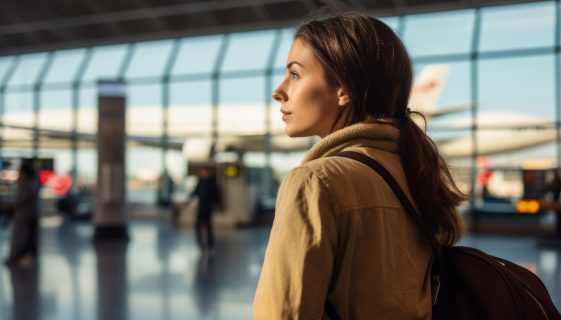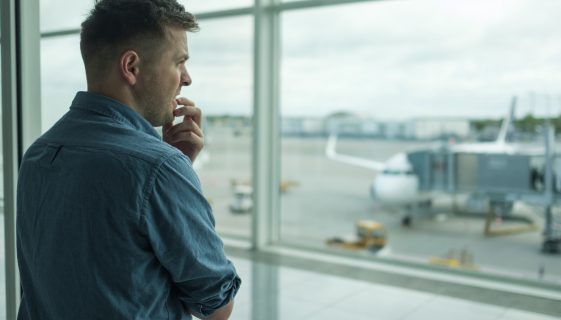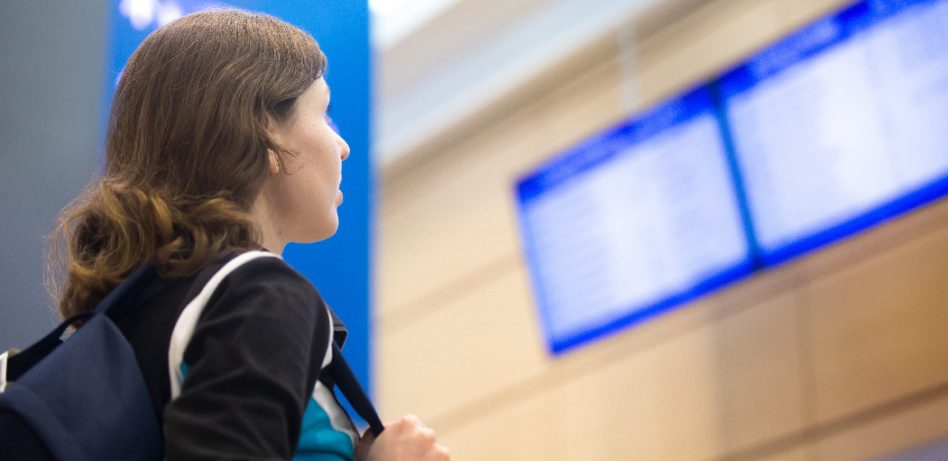Fear of Flying – Move Beyond Stagnation Towards New Travel Experiences
"I Know What The Gut-Wrenching Fear of Flying Feels Like"
You know the routine. The desire to see the world, have the same experiences as others, meet people, see things that can leave you with wonderful memories and share in things that others are experiencing. Perhaps the latter, sharing the experiences that others are having, drives you to want to get onto a plane and make those changes to your life. In the end, who wants to feel ‘left behind’ by life’s circumstances?

Or perhaps, you have a mindset that you cannot let self-limiting thoughts hold your life back, or maybe your partner wants to go on holiday and the fear of flying makes you feel that you are unable to meet his or her needs, or maybe your fear of flying affects your self-esteem.
Or maybe you just want to make that change on something that has been holding you back. Whatever it is, hypnotherapy can help and my practice uses an integrative style of therapy which includes Cognitive Behavioural work, hypnotherapy, person-centered counselling, reflective work, pro-active problem solving and solution-focused work. So, there is a way ahead for you to move through life-limiting thoughts and fears.
I know that the fear of flying affects the self-esteem of those who have this phobia. This loss of self-esteem creates a vicious cycle, a feeling of weakness and inability that holds them mentally in a space where they feel that they ‘cannot overcome their fear of flying’. So, the first step towards overcoming this phobia is to believe that there is a better future ahead and that the solution lies within you; that is because your healing starts when you decide to work on your fear of flying.
Avoidance Behaviours Because of the Fear of Flying
I remember Michaela (client MJ above), someone whom I worked with and who really tried to motivate herself to go on holiday, relax and to have experiences that others were having. She had not been on a plane for some 7 years and as she got nearer the date of her departure, she started to have anticipatory anxiety. Her fear of flying had bedded in, though one thing to note is that when the fear of flying is challenged through exposure work, it is surprising how fast the fear drops when flights are taken regularly after the initial flight.
What was clear was that Michaela’s fear of flying had not been challenged through previous activities and she had not exposed herself to her fears and relearnt from them that they were not dangerous. Even more importantly, she had not learned to recognize that her fear of flying had no real substance to it when she confronted it and because she had not travelled on a plane for a significant time, her fears seemed very real.
What Michaela missed out on absorbing was that the more she got on planes, the quicker her fear of flying would reduce. (I usually work with clients, and I ask them to visualize their fears as being akin to a form of ‘smoke and mirrors’. Their fears are like a Houdini trick and they are maintained by the illusion that they are insurmountable and that they are a real threat to the person experiencing these fears. In reality, much like any illusion, once you realize what it is about, its magnetic pull on you falls away. It becomes meaningless.
Michaela’s avoidance behaviour meant that she:
- Started to ruminate about getting onto the flight and started to suppress the thoughts, whilst sometimes distracting her mind towards other things.
- Started to have a rise in anxiety and stress levels that further strengthened and cycled the ruminations. The rise in her fear of flying and anxiety correlated in strength to how close she was coming to the day of travel. The closer she came, the stronger her fear of flying became.
- Started to feel that she could not cope when the flight took off
- Thought about whether she should exit the plane as it was about to close its doors or turn around at the departure gate and her mind flipped between the two. (She was increasingly thinking of using avoidance as a mechanism to reduce her anxiety levels).
- Eventually, Michaela woke up on the day of her travel and felt that her mind and body were anxiety-ridden and she felt that she could not travel. However, she gritted her teeth, got ready, and got into the taxi with her cases. Having got to the airport, she checked in her bags and went to the departure gates for her security checks. Knowing that she may not be able to turn back at this point, she decided not to travel and informed the airline representatives. Within an hour she had collected her bags and sat in an airport coffee shop feeling relieved, but also feeling as though her self-esteem had taken a hit.
- Whilst Michaela felt relieved that she had avoided her fear of flying and that she could start to bring her anxiety levels down, what Michaela had not realized was that she had strengthened the belief that flying within a plane was a real threat to her well-being and her life. She had also weakened her self-confidence and her belief that she was resilient enough to take the flight which would have raised her self-confidence. By avoiding the flight, she had also reduced her confidence in herself, which further solidified external fears and made her feel weak, vulnerable, and with low levels of resilience.
What Michaela was doing, which many anxiety sufferers do, is to overestimate the severity and likelihood of the threat and underestimate her ability to cope.


The Longer the Fear of Flying Remains Unchallenged, the More Difficult it Becomes to Overcome it
The longer any fear is left unchallenged, the greater the perception in an individual that it is an insurmountable problem. One of the reasons I work with clients who fear flying is because when they overcome this, their life changes to such a significant degree that they feel like a new person. They develop an acute desire to explore, have new experiences, and engage in more positive thinking patterns, thereby rapidly increasing their self-confidence.
My work on assisting clients reduce their fear of flying uses multiple approaches which include psycho-educational work, cognitive behavioral therapy and cognitive challenge, hypnotherapy, Exposure and Response prevention work, problem-solving, Acceptance and Commitment Therapy and historical reflections that explore the early childhood experiences which a client may have had when travelling.
In the end, you can be the force for change that you want to be.
How Do I Work on Tackling a ‘Fear of Flying’ Phobia?
The work that I undertake with clients includes a comprehensive 360-degree approach to weaken elements of thoughts, behaviors, cognitive associations and anticipatory anxiety activities that take place as a form of rituals that individuals with this phobia carry out.
Anticipatory anxiety leads to a set of compulsions that individuals carry out and anticipatory anxiety feels like a build-up towards the day when they may be flying and with this anticipatory anxiety comes a range of potential coping techniques that are mal-adaptive – in other words, they are not helpful and cycle and strengthen the fear. So, things like wanting to exit the situation and leave before boarding become ruminatory thoughts that become more intense as the time comes closer. Or something as mundane as asking your partner for repeated reassurance is something that strengthens the fear and the anxiety and rumination circle.
So, what do I do to assist people with a fear of flying?
- I work on helping someone gain an understanding of the possible roots of where the fear may have originated from, help in contextualising it and placing it in the timeframe when it happened. In other words, to help build some distance from that situation to the present,
- I help to develop an empathetic and supportive therapeutic environment to explore and express your fears of flying,
- Provide you with tools to relax your nervous system and regulate it through self-help practice that you can use pre, during and post-the flight,
- Provide you with the methods and tools to weaken, challenge and counter the fears that keep you from flying,
- Provide you with key information about the anxiety cycle, activating your parasympathetic nervous system through visualization exercises and active engagement processes,
- Give you a range of visualization exercises that may allow you to feel more comfortable in an airport setting and when working towards your departure date,
- Work with you in the joint development of an exposure plan which gradually allows you to work towards taking a flight.
- Work with you to explore and support your resilience and coping skills,
- Provide you with audio resources that you can listen to during your flight to reduce anxiety levels,
- Possibly accompany you on a ‘short haul’ flight so that you can have on-board support. The first flight session is the hardest, though one of the most important in ensuring that you have a positive exposure experience to the sights and sounds of being in an airport and then, an aircraft. (Costings for these can be provided for this in-person support)..

Get in Touch
Feel free to contact me via the form below or on 0208 906 6877 if you have any questions about how therapy works, or to arrange an initial assessment appointment.
All enquires are usually answered within 24 hours, and all contact is strictly confidential and uses secure phone and email services.
© Counselling4Anxiety
Powered by WebHealer

